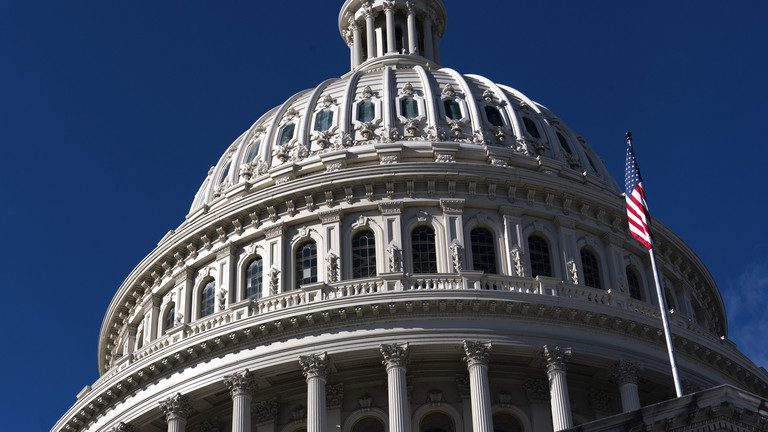World
Aid for Ukraine is included in the $886 billion defense bill passed by US lawmakers

A comprehensive military budget plan totaling over $886 billion was approved by the US House and Senate, and it contains an extra $300 million in help for Ukraine. It is anticipated that President Joe Biden will enact the legislation.
The 2024 National Defence Authorization Act (NDAA), which also passed the Senate 87–13, was approved by Congress on Thursday by a vote of 310–118. The law represents a 3% increase in the US defence budget over the previous year and authorises a wide variety of military spending, including money for new weapons and pay boosts for troops.
Though lawmakers continue to negotiate a separate $105 billion bill that would provide Israel and Ukraine with even more military support, the new NDAA only allots $300 million for the Ukraine Security Assistance Initiative through 2026. This money will be used to buy weapons for Kiev directly from defence contractors. As of Thursday afternoon, the programme has almost completely exhausted itself after receiving dozens of relief packages since last year. There was only $1 billion left.
The greatest authorization for military spending in US history, the bill was enacted separately this year in the House and the Senate but was subject to protracted talks as legislators tried to reconcile a final version before sending it to President Biden’s desk.
Proposals pertaining to divisive social topics, like medical care for transgender service members and access to abortion in the military, were among the grounds of contention. Although similar language had originally been included in the measure, the Republican-majority House eventually withdrew much of it in response to strong protests from conservative members.
Prior to Thursday’s vote, Texas Republican Representative Chip Roy declared, “There is no justification for supporting a bill that does not materially change the direction of our military away from social engineering.” The law, he continued, will just keep the “woke policies undermining our military in place.”
Rep. Mike Rogers, one of the few Republicans who did not oppose the bill, stated that it “goes a long way towards ending woke policies being forced on our service members by left-wing bureaucrats.”
Legislators also fought over a bill to renew the government’s ability to monitor non-US citizens abroad under Section 702 of the Foreign Intelligence Surveillance Act. However, because the programme allows for “incidental” data collection on US residents who interact with foreign suspects, critics claim that it effectively authorises unwarranted spying on Americans. The powers were extended until the middle of April 2024 in the compromise legislation.
The NDAA also includes $168 billion for the purchase of weapons, $145 billion for research and development, and $32 billion for the US nuclear arsenal. This represents the greatest pay increase for US service members in more than 20 years, at 5.2%.
